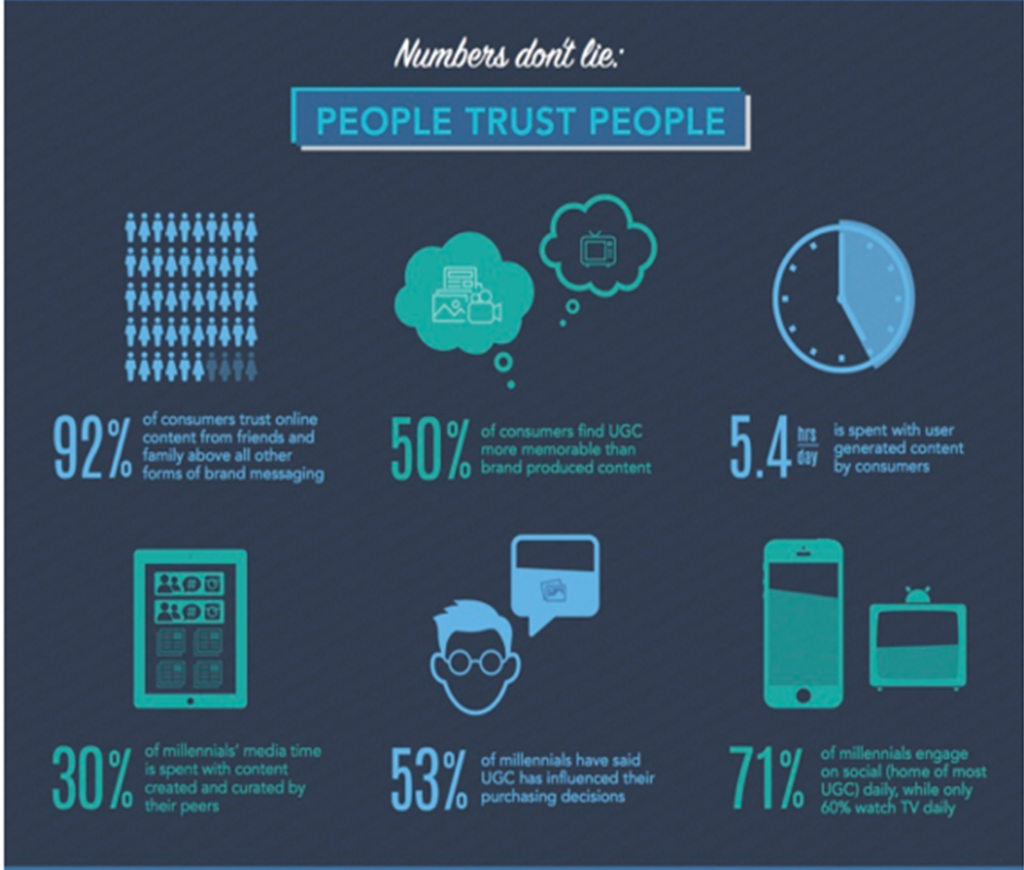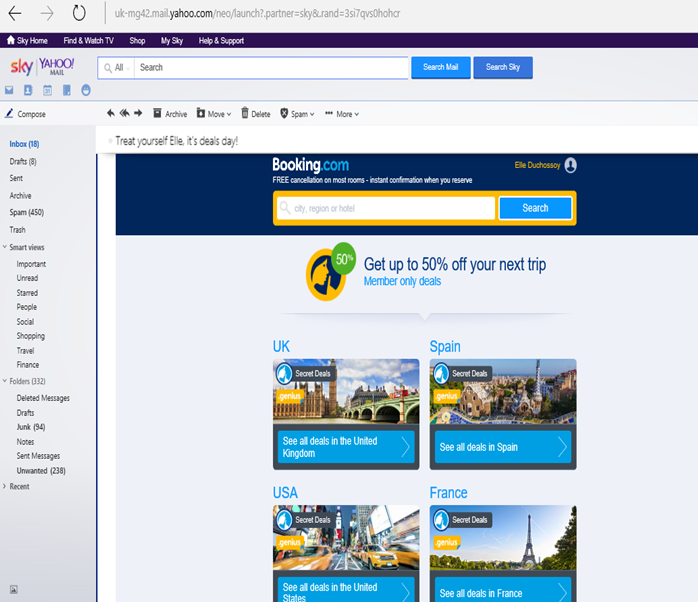So, I guess your first question is why do I need to use bloggers to promote my business or product?
Successful bloggers have high following and this can create a high volume of awareness for your product (Busch, 2004). A report commissioned by the Affiliate Network (2015) identified that bloggers are the third most trusted source, behind family and friends; bloggers can therefore also influence consumers purchasing decisions as well as create awareness (Gillin, 2009). This can be achieved at a low cost (Black, 2015). If you still unsure, take a look at Maz Deo blog to see the outcomes for a business that used bloggers.
So, I guess your second questions is how do I get a blogger to promote my business or product?
This is the ultimate question..
But, let me let you into 5 simple tips that will answer this question, so you and your business can enjoy the rewards of collaborating with bloggers.
- Research bloggers
Create a short list for bloggers that are influential towards your target audience, this can be achieved using a number of free and simple tools. Allot is a free tool you can use to search for blogs that are highly engaged.
You can also use google search engine using long tail searches (Dean, 2017); for example, if you are a dress making company, search for top dress making blogs in the UK; see figure 1. Notice here it is of importance to search for bloggers specific to your target audience, this is because there is millions of blogs and thus, the more specific, the more chance these are the bloggers with your target audience (Borchadt, 2015). For example, simply searching for fashion bloggers will give you a range of fashion bloggers but their audience may not be interested in making their own dresses and thus may not be interested in your business despite marketing efforts from the bloggers; Brassington and Pettitt (2013) support this argument.
Figure 1
Further to this, in your google search it is important to use terms such as “top” as bloggers need to have an engaged following in order to be influential (Fabrizio, 2016). However, it is not always the quantity of followers but their engagement and matching to your target market (Kersten, 2014) gaining access to smaller bloggers may be more realistic in terms of cost for smaller business (Borchadt, 2015)
However, it is also important to look for bloggers that already interact with your brand through social media this is because they are already engaged with your brand and thus it is easier to create a relationship with them (Kersten, 2014) and enhance their acceptability to promoting your business (Mikkles and Callahan, 2010; Kersten, 2014). Practically, this can be achieved simply by researching those people who engage in your social media to identify if they have their own publishing platform (Kersten, 2014). However, this can be time consuming Sreejesh et al (2013) argued that the availability of time is a key restraint to a lot of businesses, thus a business could set up google alerts to monitor mentions of your products/brand on blogs. Have a look at this quick YouTube video that shows how google alerts can be used.
2. Reach out
Note that to make this process easier check your short list of bloggers for Media, Work with Me, or PR page on their blog. Information about how to reach them to partner with your brand should be presented here, if it is follow their steps.
If not, follow these tips, if I’m honest, even if they have these pages, still follow these tips, the pages just show you that they are open to the email and working with you and thus making the whole process easier.
Firstly, start by reposting some of their content and offer complimentary comments on their content, this demonstrates that your are engaged and begins the relationship; Newlands (2011) argues that the relationship is the most important part to influencing bloggers to work with you and thus demonstrating the importance of taking time in this process.
The next step is the email,
Be personal. Chadwick et al (2010) argue that personalisation in emails increases engagement because it shows you value them as you have taken the time to write an email specific to them. However, also remember this is a professional relationship, for example do not start with Hi Mate, instead start with Hi *bloggers Name*; Clark (2010) supports this professional line. Take a look at Chadwick et al (2009) article on effective email marketing
Be genuine. Again, demonstrate you are already engaged with their content by commenting and complimenting on their recent post in you email.
Keep it concise. Bloggers can receive lots of emails, therefore to increase the chances of them reading and engaging with your email keep it to the point and short. Greissler et al (2006) supported this as they concluded that excessive information can have a negative influence on consumer attention; Chaffey (2010) added that this can lead to response decay, therefore, demonstrating the importance to keep all further emails to the blogger short and concise.
Have a call to action. Tell the bloggers what you would like them to do, for example, end the email by saying, please contact me for further details or we can arrange a meeting; ensure you give them all your contact information
Put this all together, here is an example of an email; see figure 2.
Figure 2
Have a look Holly Borchardt blog for more information of the format of the email.
3. Provide Incentives
To influencers bloggers to engage with your brand, you should offer them incentives (McAllister and West, 2013). This is in line with Vroom Expectancy Theory (1964) which displays that individuals are motivated to do something because they think their actions will lead to their desired outcome (Parijat and Bagga, 2014). Thus demonstrating it is important to ask the blogger what they would require. Kersten (2014) however argues, that bloggers with smaller blogs may like to be provided with free samples whereas bloggers with bigger blogs may require financial incentives. Thus it is important to tailor your incentive to your audience (Craig and Jaskiel, 2002).
4. Be specific about your objectives
Inform the blogger about your overall goals, for example, if you are asking them to promote a campaign, tell them there is a specific landing page you would like them to direct their audience too or a specific hashtag to use and encourage or a specific part of the campaign you would like them to focus on.
However, Cass (2007) agues that bloggers can be effective marketers and therefore businesses should be open to the bloggers ideas about how to promote your brand; demonstrating that yes you should be specific about what you want but not necessary how they achieve this.
5. Maintain a relationship
Ensure you thank the blogger if they have done what you have asked. If you have experienced favourable outcomes of the collaboration such as increased consumer engagement or sales that are a direct outcome from the bloggers promotional activity, then you may wish to use this marketing channel again. Thus, ensure you continue to follow them and comment on their content as Newlands (2011) identifies that this will enhance the probability of them being open to working with you in the future and thus reducing the resources spent on finding new effective bloggers.
As maintaining a relationship is key, take a look at Kirsten Mathew blog which explains how these can be achieved in greater detail.
So, that’s it, simple I know. So, go on, go enjoy the benefits of working with bloggers, don’t fall behind in the social media marketing game.
But,
Before you go, here are my top tips; just to save you time to read it all again later.
- Short list bloggers that are specific to your target audience and have an engaged following
- Take a look on their pages to see if they have media or PR pages and follow their advice and ways to contact them
- Ensure your email is personal, concise, genuine and has a call to action
- Offer incentives that correlates with what that specific blogger will expect
- Be specific about your objective but leave room for the blogger to have their input
- Maintain a relationship
Okay, now that really is it.
References
Affiliate Network (2015). Bloggers trusted more than celebrities, journalists, brands and politicians. [online] Available at: https://www.affili.net/uk/about-affilinet/press-and-news/2015/bloggers-trusted-more-than-celebrities-journalist [Accessed 3 May 2017].
Black, J. (2015). I Only Wanted to Sell Brushes. Page Publishing Inc.
Borchardt, H. (2015). How to Reach Out to Bloggers to Promote Your Brand. [online] Volume Nine. Available at: https://www.v9seo.com/blog/2015/07/29/how-to-reach-out-to-bloggers-to-promote-your-brand/ [Accessed 3 May 2017].
Busch, D. D. (2014). Perspectives on Branding. Cengage Learning
Cass, J. (2007). Strategies and Tools for Corporate Blogging. Routledge.
Chadwick, E., Dohery, F. and Neil, F. (2010). Web advertising: the role of email marketing. Journal of Business Research. 66(6) pp. 843-848
Chaffey, D. (2012). E- Business & E-Commerce Management. Pearson.
Chaffey, D. (2012) E-Business & E-Commerce Management, Pearson
Clark, L. E. (2010). How to Open and Operate a Financially Successful Bookkeeping Business. Atlantic Publishing
Craig, R. D. and Jaskiel, S. P. (2002). Systematic Software Testing. Artech House.
Dean, B. (2017). Blogger Outreach Made Simple: A Step-by-Step Guide. [online] Smart Blogger. Available at: https://smartblogger.com/blogger-outreach/ [Accessed 3 May 2017].
Fabrizio, M. (2016). Global Marketing Strategies for the Promotion of Luxury Goods. IGI Global
Geisler, G. L., Zinkhan, G. M. and Watson, R. T. (2006). The influence of home page complexity on consumer attention, attitudes and purchase intent. Journal of Advertising. 35(2). pp. 69-80
Gillin, P. (2009). The New Influencers: A Marketer’s Guide to the New Social Media. Linden Publishing.
Kersten, R. (2014). Using bloggers to promote your business – 5 simple tips. [online] Linkedin.com. Available at: https://www.linkedin.com/pulse/20140903220212-44322153-using-bloggers-to-promote-your-business-5-simple-tips [Accessed 3 May 2017].
Kumar, V. and Reinatrz. Customer Relationship Management: Concept, Strategy, and Tools. ed 2. Springer Science & Business Media.
McAllister, M. P. and West, E. (2013). The Routledge Companion to Advertising and Promotional Culture. Routledge.
Mikles, L. and Callahan, P. (2010). Engage Your Brand. Lulu.com
Newlands, M. (2011). Online Marketing: A User’s Manual. John Wiley & Sons.
Parijat, P. and Bagga, S. (2014). Victor Vroom’s Expectancy Theory of Motivation- An Evaluation. International Journal of Business Management. Vol VII, Issue, 9.
Sreejesh, S., M. and Anusree, M. R. (2013). Business Research Methods: An Applied Organisation. Springer Science & Business Media.










 Figure 3 (Hurlburt, 2017)
Figure 3 (Hurlburt, 2017)



